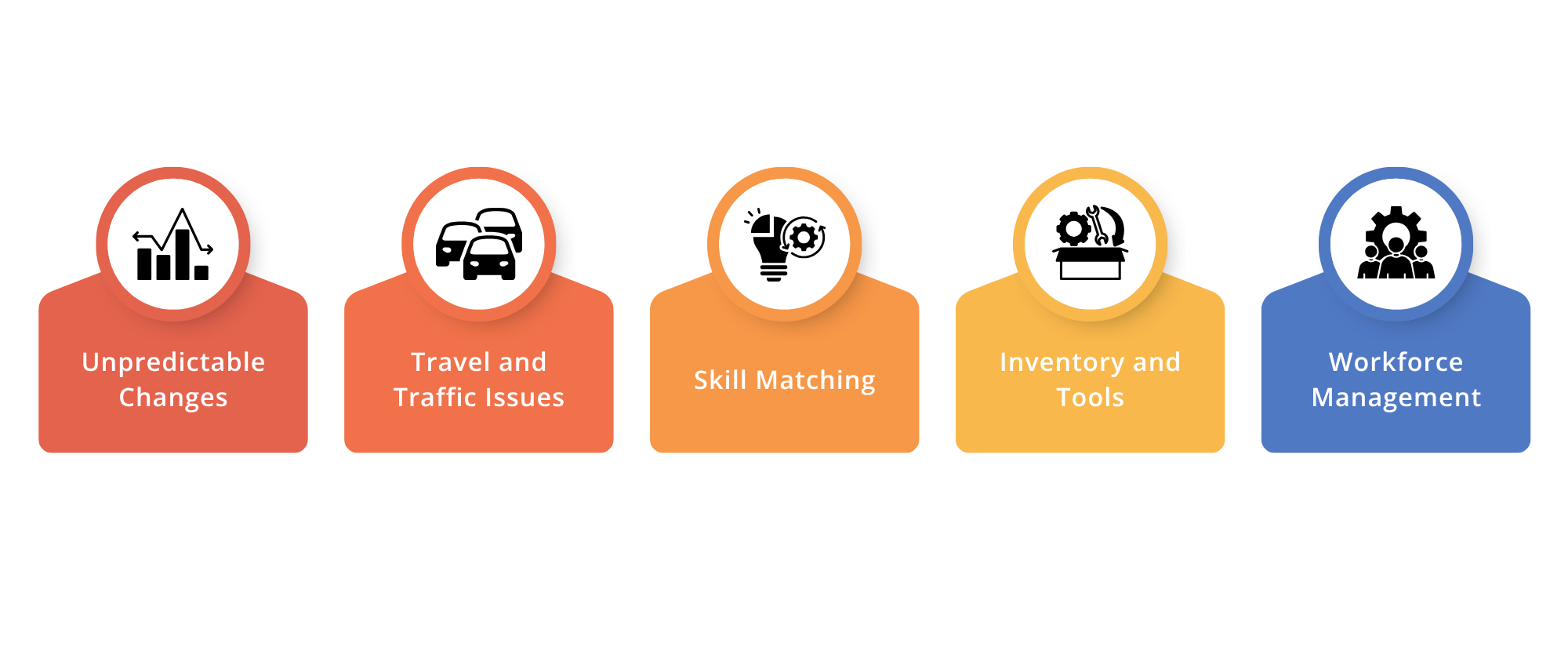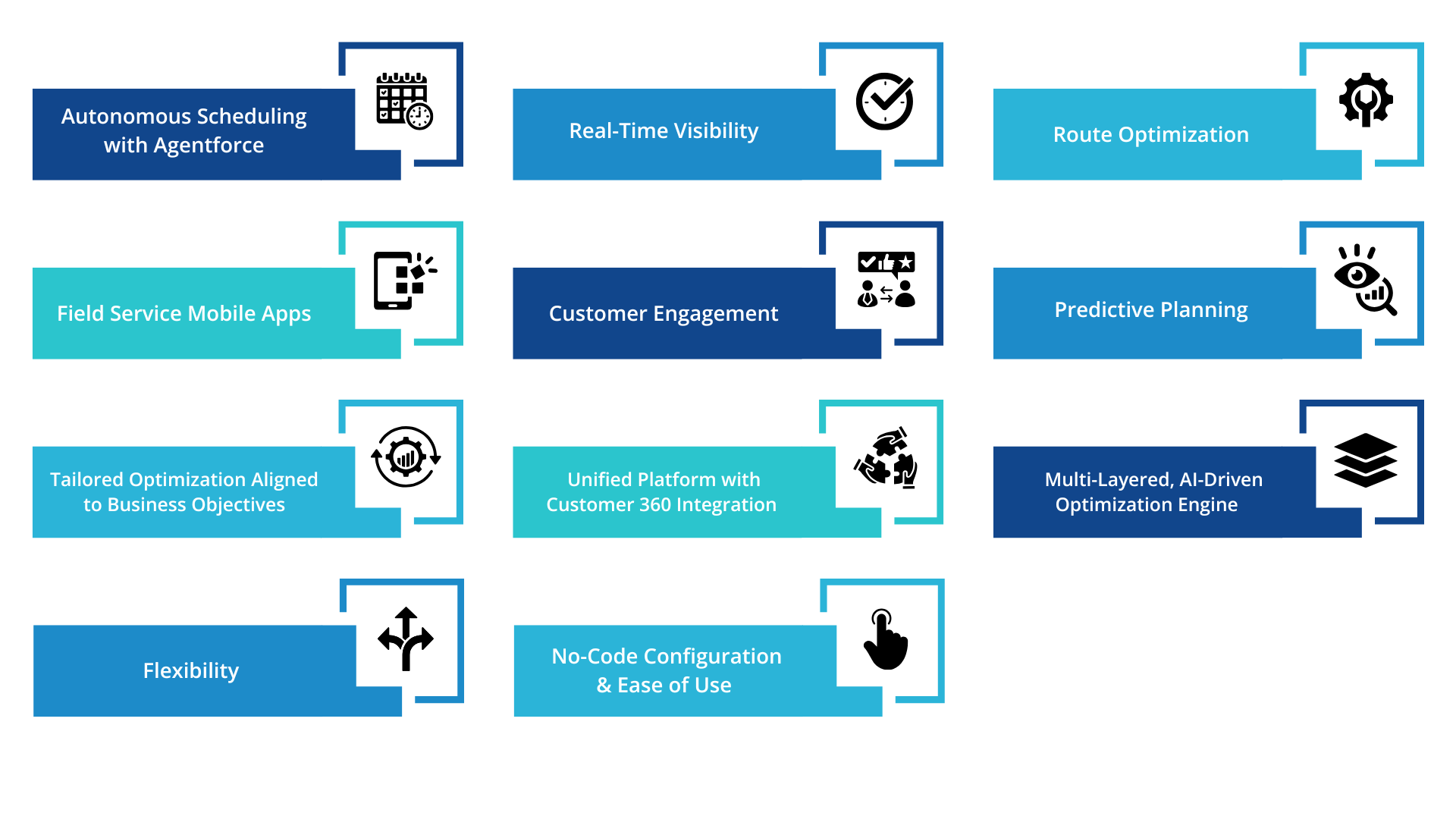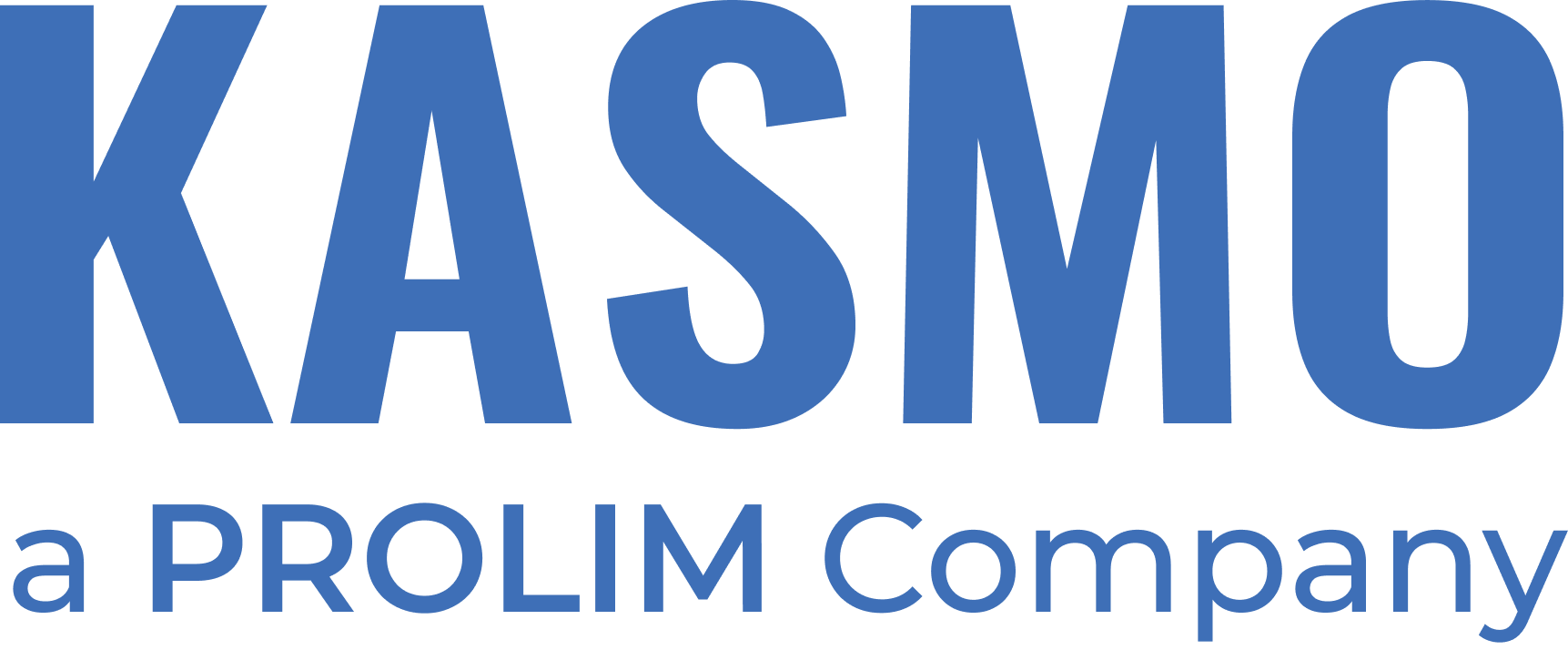Importance of a Field Service Management System
Companies that operate with a mobile workforce or field agents need to be more responsive, efficient, and data driven. Whether you’re managing equipment repairs, performing scheduled maintenance, or deploying technicians for on-site installations, having the right field service management system in place to coordinate with all field agents and customers is crucial.
A modern field service management (FSM) system helps businesses streamline operations, improve customer satisfaction, and maximize productivity by ensuring that field agents are in the right place, at the right time, with the right tools. Let’s understand why a robust field service management system is crucial:
Streamlines Operations
An FSM system eliminates manual processes and data silos by centralizing data from diverse sources on a unified customer relationship management (CRM) platform. From work order management (a structured process for handling maintenance and service requests, ensuring tasks are completed efficiently and effectively from initiation to completion) and route planning to inventory tracking and billing, all aspects of field operations can be accessed and managed in one place. This integration helps organizations maintain operational efficiency and minimize miscommunications that might lead to delays or failed service visits, increasing customer dissatisfaction.
Facilitates Real-Time Updates
Real-time updates keep organizations informed of each field agent’s progress, allowing them to adjust schedules or reassign tasks instantly in response to changing circumstances. A robust field service management system enables field agents to receive job details, customer history, and asset information on their mobile devices, reducing the need for them to go back-and-forth with the company and consumers. FSM also empowers these field service technicians to deliver efficient service on the first visit.
Enhances Decision-Making
FSM systems provide access to real-time analytics and historical performance metrics, which can be used to forecast demand, identify operational inefficiencies, and allocate resources effectively. This approach enables business leaders to take smarter and data-driven decisions. With decisions backed by data, business leaders can now allocate and schedule field service agents effectively, saving both time and utilizing the resources better.
Improves Customer Experience
Field service management is not just about increasing internal efficiency; it’s also about delivering the best customer experiences. With real-time technician tracking, automated appointment reminders, and faster case resolutions, customers feel informed, respected, and satisfied with their service.
What Role Does Field Service Scheduling Play in a Field Service Management System?
Field service scheduling is a critical component of any FSM system. It involves planning, allocating, and tracking field service technicians’ appointments, which helps organizations maximize efficiency and meet customer expectations. Without effective field service scheduling, even the best-trained field agents and most powerful FSM tools can fall short.
Efficient field service scheduling is more than simply assigning tasks. It involves matching job requirements with technicians’ skills, availability, proximity to customers, and inventory level, along with accounting for unpredictable situations that can cause challenges like traffic, unexpected cancellations, and emergency calls. A well-optimized field service scheduling helps organizations ensure higher first-time fix rates, minimize service delays, and keep customers happy.
Can an Enhanced Field Service Scheduling Bring a Change to Your Old Field Service Management System?
To create the best field service scheduling, organizations often tend to use AI or other AI-powered tools or platforms. However, due to inconsistent knowledge, these organizations end up creating schedules that might not work for them.
With the proper knowledge and technical expertise, business leaders can harness the power of Salesforce Agentforce to automate scheduling decisions. Agentforce is simple to use, easy to handle, and you don’t need to have deep technical knowledge to operate Agentforce’s AI Agents. Now with Agentforce, field service scheduling has become easy and efficient, thereby improving the existing field service management systems.
For example, you can program AI Agents to create accurate schedules for field service agents based on their certifications, past performance, and current location. These AI Agents also consider numerous variables to create optimized schedules that maximize productivity and minimize travel time.
Agentforce helps field agents optimize their schedules by reducing unnecessary travel, eliminating idle time, and facilitating them to complete more jobs per day. With Salesforce, these field agents can access customer data and help them stay connected to their organizations at the same time. Agentforce helps field technicians update their job status, request support, and access troubleshooting guides in near real time on a single platform or through field service mobile apps.
What are the Challenges in Field Service Scheduling?
While the benefits of efficient scheduling are clear, achieving it comes with several challenges:

Unpredictable Changes
Last-minute cancellations, urgent service requests, and changes in the availability of field agents can disrupt carefully planned schedules. Without a dynamic system in place, it becomes difficult for business leaders to make real-time adjustments without compromising on service quality.
Travel and Traffic Issues
Inefficient route planning can result in excessive travel time, delayed arrivals, and increased fuel costs. This not only reduces the number of jobs a field service agent can complete but also affects the time taken to resolve customer issues.
Skill Matching
Not every technician is suited for every task. Mismatches between job requirements and an agent’s expertise can lead to longer repair times, repeat visits, and dissatisfied customers.
Inventory and Tools
Field service agents must have the right parts and tools to complete each job. Without real-time inventory visibility, service delays are common, leading to rescheduling, increasing operational costs, and reducing brand loyalty.
Workforce Management
Managing a mix of full-time employees, part-time contractors, and third-party vendors makes it challenging for organizations to create accurate schedules. Each field agent may have different availability and skill sets that make it necessary for leaders to consider them before deploying them on any task.
Overcoming these obstacles requires organizations to leverage CRM platforms like Salesforce, automation tools like Agentforce, and real-time data, to create accurate field service schedules for agents.
Why Leverage Salesforce to Optimize Field Service Scheduling
Salesforce Field Service and Agentforce are powerful platforms designed to eliminate scheduling challenges and improve the performance of field service agents. Here’s how it addresses common pain points and helps organizations improve their field service management system:

Autonomous Scheduling with Agentforce
Leveraging Salesforce Agentforce, field service or business leaders can automate the assignments and schedules of field agents based on skills, proximity to client locations, and availability. This minimizes manual planning and ensures tasks are always assigned to the best-suited field service agent.
Real-Time Visibility
Salesforce provides live updates on technician location, job status, and travel progress. Dispatchers can reassign jobs on the fly in response to emergencies or cancellations, maintaining the organization’s speed in solving customer queries.
Route Optimization
Salesforce uses traffic data and geographic information to suggest the most efficient routes to field service agents. This reduces travel time, improves punctuality, and allows technicians to handle more appointments every day.
Field Service Mobile App
Salesforce’s field service mobile app gives field agents real-time access to schedules, customer history, an overview of the inventory, and provides support resources easily. This empowers them to deliver efficient service, regardless of location.
Customer Engagement
Organizations can customize Agentforce to provide automated reminders and live tracking links to keep customers informed of the field service agent at all times. Customizing Agentforce allows customers to reschedule at any time, which builds customer satisfaction and enhances brand loyalty.
Predictive Planning
Salesforce leverages predictive analytics to forecast demand, enabling better resource planning and fewer service delays. This proactive approach boosts responsiveness and reduces workloads.
Tailored Optimization Aligned to Business Objectives
Salesforce Field Service goes beyond basic scheduling by enabling organizations to define precise business rules and service objectives to field service agents and customers. Whether the goal is to reduce mileage, maximize resource utilization, or improve Service Level Agreement (SLA) compliance (refers to a service provider’s ability to meet the agreed-upon service standards outlined in an SLA with a customer). Salesforce’s code-free scheduling policy framework ensures the scheduling engine aligns with your unique business key performance indicators (KPIs).
Unified Platform with Customer 360 Integration
Salesforce Field Service consolidates all the customer and company data from Sales, Service, Marketing, and Commerce Clouds. This consolidated data provides a unified view of customers and field service agents, which enhances field service scheduling. This empowers business leaders to provide personalized service experiences to customers based on preferences, past interactions, and recent engagements with the business.
Multi-Layered, AI-Driven Optimization Engine
Salesforce Field Service offers three powerful layers of optimization:
- Global Optimization: Long-range, territory-wide schedule planning.
- In-Day Optimization: Same-day re-optimization based on booking changes.
- Immediate Optimization: Facilitates responding in real-time to unplanned situations like delays, cancellations, or high-priority work.
Flexibility
Salesforce Field Service has features like policy shifting, which enables organizations to prioritize emergency response, adjust rules based on resource types (internal field agents vs. contractors), or adapt scheduling during peak demand. This flexibility helps maintain service standards even in unplanned situations or incidents.
No-Code Configuration & Ease of Use
Field service managers don’t need to write code to adjust rules or policies in the Salesforce Field Service platform. It is highly configurable, allowing business users to maintain control and agility without depending too much on IT teams.
Harnessing the Salesforce ecosystem, which consists of Sales, Service, Marketing, Clouds etc., Data Cloud, and Customer 360, ensures that field service agents remain agile and stress-free under any circumstance. Salesforce empowers organizations to deliver smarter, faster, and better scheduling that improves the field service management system, driving customer satisfaction and enhancing operational efficiency.
What are the Benefits of a Robust Field Service Management System?
A modern FSM system doesn’t just solve day-to-day scheduling challenges. It transforms how businesses manage their entire field service operations.
“94% Of service professionals in high-performing organizations cite productivity as a major or moderate benefit of field service management — an important consideration as organizations look for ways to cut operational costs without compromising customer satisfaction.”
Here are some of the most significant benefits of field service management systems:
Maximized Uptime
FSM systems help businesses detect issues before they escalate, enabling proactive maintenance that prevents breakdowns. By resolving problems early in the asset lifecycle, companies can improve customer engagement, get a better understanding of their inventory, and reduce downtime.
Improved First-Time Fix Rates
By ensuring the right field agent is assigned with the correct tools, parts, and information, organizations can significantly boost first-time fix rates. With the right scheduling, field service management systems can be improved, resulting in faster service, happier customers, and reduced repeat visits.
Enhanced Field Agent Productivity
FSM platforms streamline daily workflows, reducing administrative burdens and travel inefficiencies. Field agents spend more time servicing customers and less time managing paperwork or commuting between jobs.
Increased Cost Efficiency
Optimized scheduling, route planning, and inventory management help reduce fuel costs, overtime, and equipment wear. These efficiencies create a better field management system, and help businesses reduce operational costs.
Better Compliance and Safety
FSM systems allow managers to ensure that only certified field agents are assigned to tasks requiring those specific skills. This reduces risk, enhances safety, and ensures compliance with industry-related regulatory standards.
Data-Driven Insights
With a better field management system, organizations can get robust analytics dashboards which provide insights into team performance, service KPIs, and customer satisfaction metrics. Organizations can use these insights to continuously improve their field service operations and make strategic decisions.
Stronger Customer Relationships
From getting real-time updates and transparent communication to fast resolutions, the FSM system elevates the customer experience. Satisfied customers are more likely to become loyal brand advocates, improving customer retention and driving business growth.
Conclusion
According to research conducted by Salesforce, “82% of organizations with field service depend on their mobile workers to upsell products and services”. Businesses need to overcome their field service scheduling challenges and empower their field agents with adequate tools, resources, and AI Agents. With accurate scheduling, businesses can improve their field service management system, streamline operations, and deliver exceptional customer experiences.
By leveraging platforms like Salesforce Field Service and Agentforce, companies can overcome challenges in field service scheduling and unlock enhanced productivity, profitability, and customer satisfaction.






